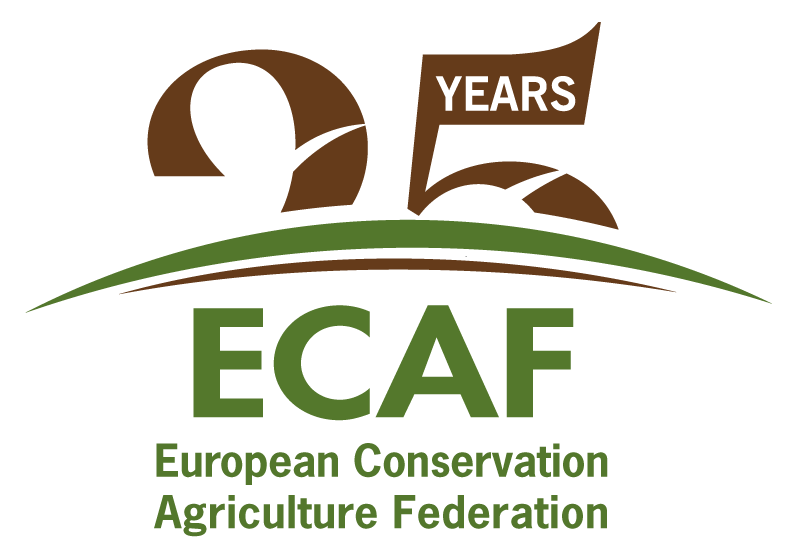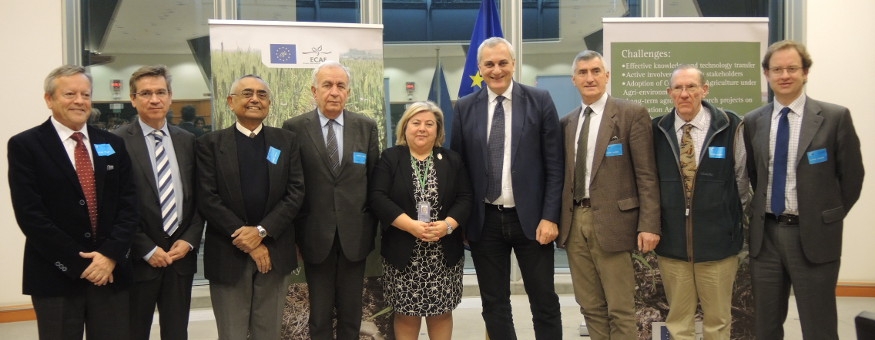On January 13th, 2016, an important event was hold at the European Parliament, which can be defined as historic for professionals who have spent more than two decades dedicating to implement and disseminate the conservation agriculture techniques. The European Parliament organized a seminar to support these sustainable techniques, on which farmers across Europe had the opportunity to talk about its multiple benefits. In this sense, Clara Aguilera, Vice-Chair of the Committee on Agriculture and Rural Development (COMAGRI), asked for the full integration of these practices in the future CAP.
The European Parliament hosted the “Making Sustainable Agriculture Real” seminar around sustainability and European agriculture. The event was organized by MEP Clara Aguilera and MEP Nicola Caputo (S&D group) and gathered farmers from 7 member states, representing the over 3 million hectares of cropland under Conservation Agriculture in Europe, that shared their insights on the application of Conservation Agriculture practices and benefits.
MEP Clara Aguilera, Vice-Chair of COMAGRI, urged for better integration of Conservation Agriculture practices into the CAP. “Conservation Agriculture is part of the solution for climate change and it must be integrated into future CAP related measures”.
MEP Nicola Caputo, Member of COMAGRI and co-chair of the LIFE working group of the European Parliament, reminded everyone of the need to facilitate the implementation of these CA principles in practice. This view was reflected by DG Agri Pierre Bascou that showed the policy elements already contained in the current CAP schemes within cross compliance, direct payment and rural development instruments.
The President of the European Conservation Agriculture Federation (ECAF), Gottlieb Basch, commended the timeliness and importance of this initiative of the S&D group in the EP. He also pointed to 2 European projects, Life+ Climagri and Inspia, as concrete evidence of the positive impact of these practices on farmland across Europe, where higher productivity goes hand in hand with the restoration of habitats for critically endangered bird species like starlings and the great bustard, as indicators of higher biodiversity along with other positive environmental services.
FAO advisor and University of Reading Professor Amir Kassam also emphasized the positive impact on reduced soil erosion. “In Europe alone, we are losing almost a billion tonnes of topsoil per year corresponding to 1 cm of topsoil in an area twice the size of Belgium”. However he added that the spread of CA worldwide already covers 160 million hectares of cropland, which is increasing at an annual rate of some 10 million hectares and growing.
ECAF sees now that challenges around the multiple Sustainable Development goals and the COP21 targets will only be effectively addressed if policies support farmers to adopt Conservation Agriculture practices.

